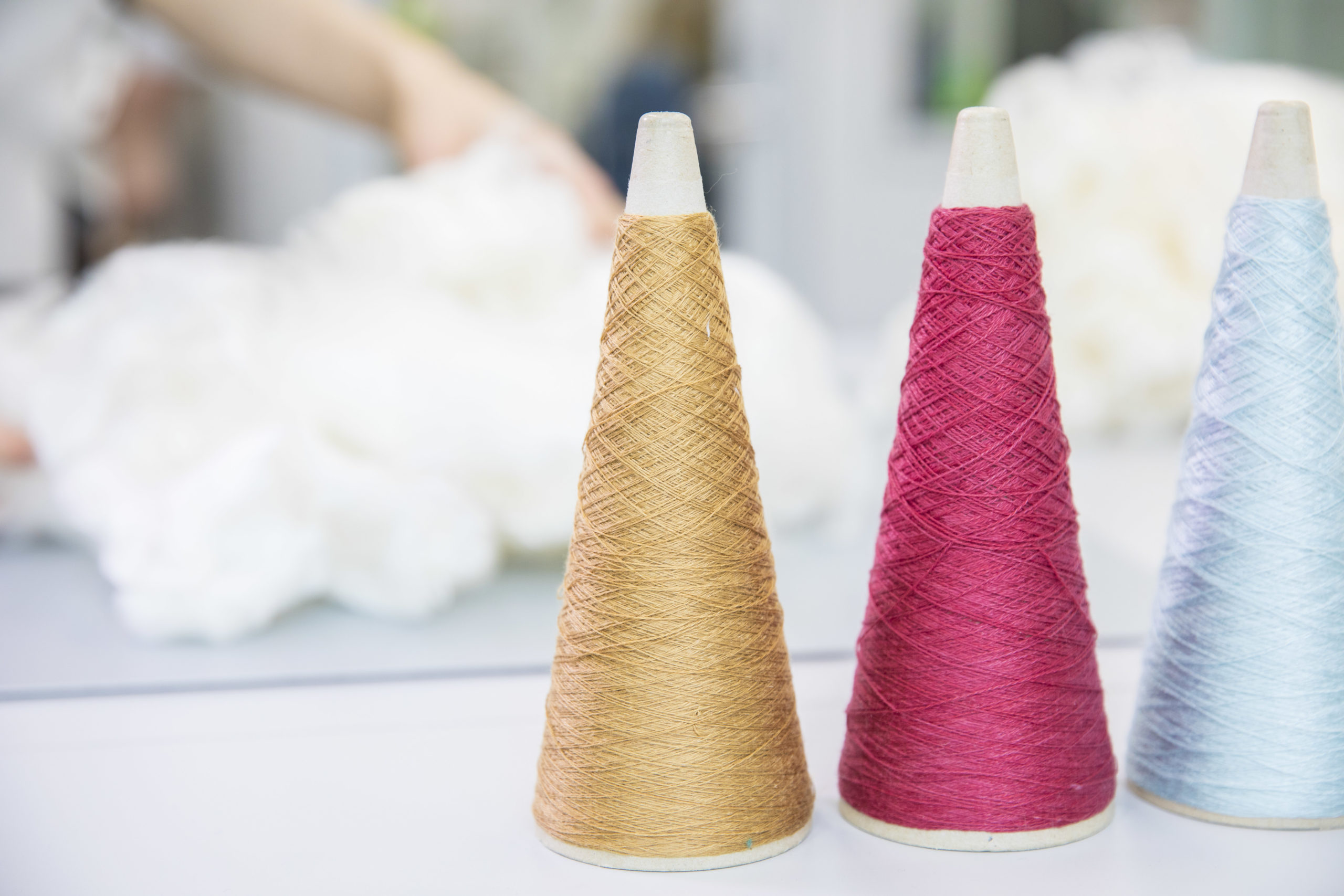
FinnFiberColor project develops sustainable solutions for man-made cellulose fiber processes
Projects NewsThe goal of the FinnFiberColor project is to develop solutions for the challenges that man-made cellulose fiber (MMCF) technologies currently developed in Finland will face when they will be integrated into the textile chain. In the project, advanced analytical tools will be utilised to better understand how alternative biobased raw materials can be used for existing and new spinning technology.
From cellulose to new Finnish man-made cellulose fibers and sustainably colored textiles (FinnFiberColor) is one of the first projects in the ExpandFibre Ecosystem and it is led by the Department of Bioproducts and Biosystems at Aalto University. The properties of novel MMCFs will be studied to ensure their compatibility with further processing steps. To reduce the environmental impact and enhance sustainability, FinnFiberColor will also study alternative raw materials for MMCFs and two novel textile coloration technologies: spin dyeing using bio-colorants and non-water, salt-free dyeing.
Finland is on its way to become a hub for novel biobased textile fibers. Several new fiber technologies have been developed through private and public research. However, the textile value chain from raw material to final product is highly fragmented and new technologies must be compatible with the existing chain to guarantee commercial success.
The main coordinator of the project, Professor Michael Hummel from Aalto University, says: “FinnFiberColor is excited to be part of the ExpandFibre Ecosystem. Our consortium includes ten leading companies (Metsä Spring, Fortum, Stora Enso, UPM-Kymmene, Kemira, ANDRITZ, Orneule, Sidoste, Tam-Silk and Jokipiin Pellava) which provide us with expertise along the entire value chain from local raw materials to the final product. The ExpandFibre Ecosystem creates the perfect environment to develop our competences in the textile sector even further to path the way for more sustainable textiles and clothing.”
Finland used to be a center of textile expertise in Europe but due to the globalisation of markets and production during the past decades, many textile businesses have closed, and expertise got lost. Propelled by the increasing environmental awareness among the population, many initiatives, such as FinnFiberColor, to reverse this trend have been recently launched.
Photo: Mikko Raskinen, Aalto University